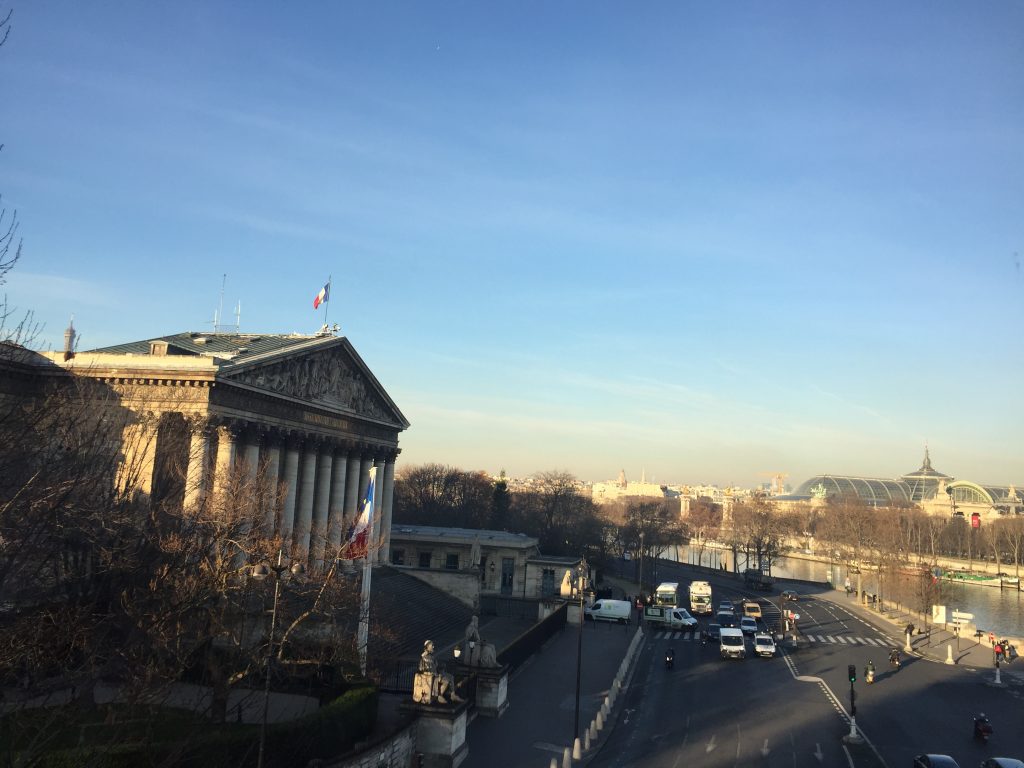
Written by: Tyler Wren (History, Class of 2019)
I am ever so grateful to the history department for the opportunity to travel to and study in Europe. Their sponsoring of my attendance in the new J-term course offered in Paris, POLS-209, and also providing an additional $1,000 for travel expenses, this allowed me to not only travel to Paris but also enabled me to travel more broadly within Europe itself. For example, giving me a cheaper and faster route to also visit London. Going to both London and Paris were crucial experiences for my upcoming research paper on Brexit and its implications on Europe that I will be writing with Professor Regan-Lefebvre.
Beginning with Professor Lefebvre’s class provided the perfect precursor for me on Brexit. What I learned from the primary source analyses and big-picture observances will definitely be relevant in the paper. Meeting with the media coordinator of the Delegation of the European Union was a crucial experience, providing insight into the national inner workings of the EU in France.
Outside of the classroom, throughout Paris, I got to experience the cultural climate of EU relations as reflected by the physical environment with the plentiful EU flags and buildings present. This then contrasted with the climate I observed in London. The contrast between the two bears out the differences in the current discourse around the EU in the two countries I also had the chance to travel to Edinburgh, Scotland. This trip was also beneficial to the paper as I came to understand the predicament that Scotland is now in because of Sturgeon and the rest of the country not on the same page as England on the denunciation of the EU. I had already known that the majority of Scotland had voted to remain. But by reading local Scottish newspapers and even through quick personal exchanges with Scots I could foresee the true possibility of indyref2 so that could Scotland could maneuver a way to remain in the EU. The Scottish newspapers were extremely insightful, ranging from Sturgeon’s own opinion on the matter or for their critical commentary on Boris Johnson, the Englishman. All of these experiences will be vital parts of my paper.

Then, every exchange I had with Londoners, although which way they voted was unclear, included the simple confirmation that Brexit is happening and they, as citizens, will have to learn and adapt to the new UK that they will be a part of that is no longer in the EU.
I firmly feel that all of these experiences were indispensable and will be vital to the paper. I will definitely be excited and grateful to write this paper thanks to the History department. I am grateful to the History department for this opportunity and am excited to use this visceral appreciation and intimate understanding to guide and drive my work on the paper.
